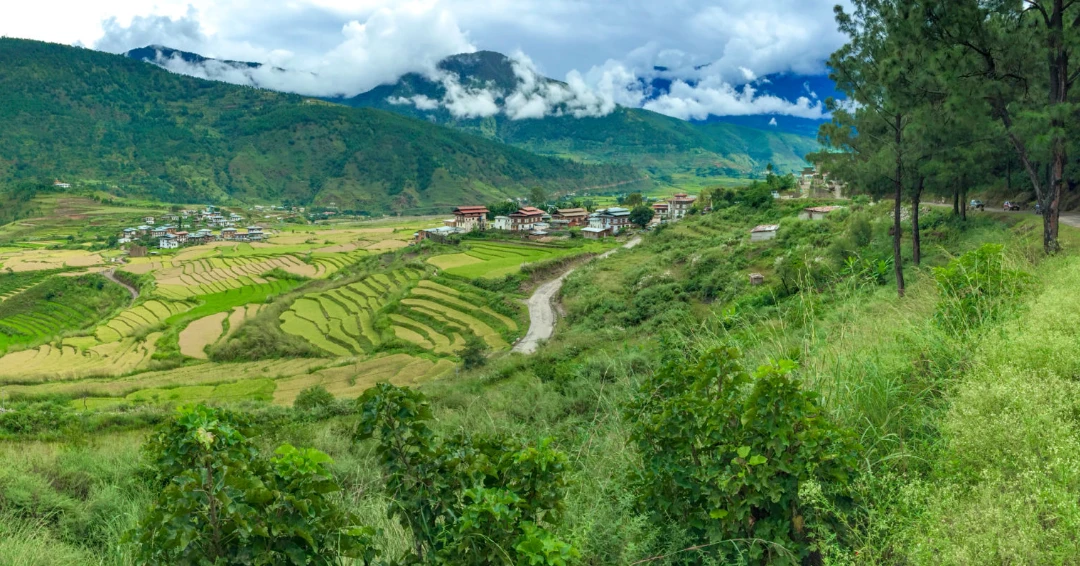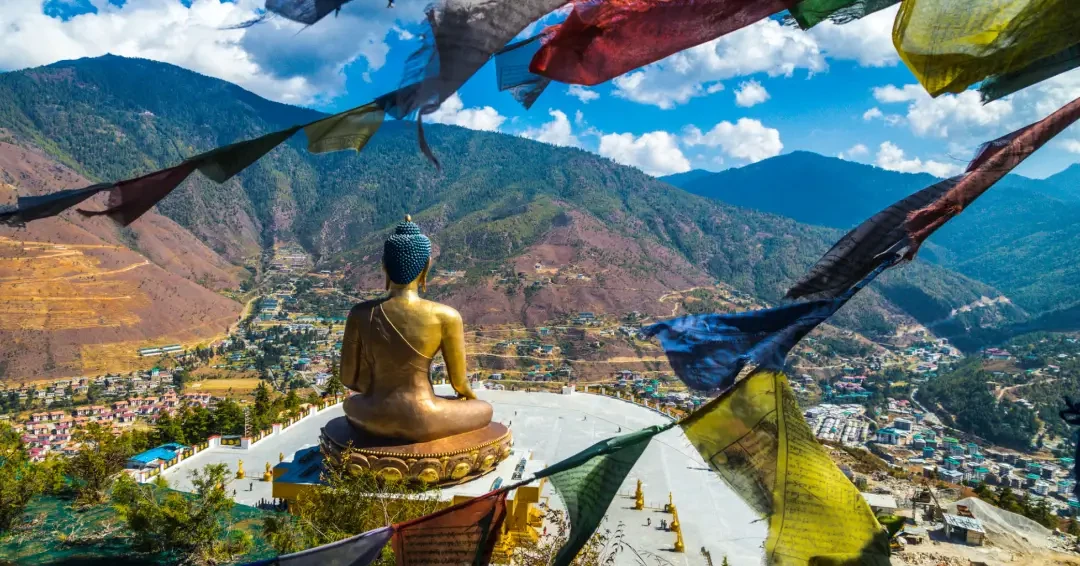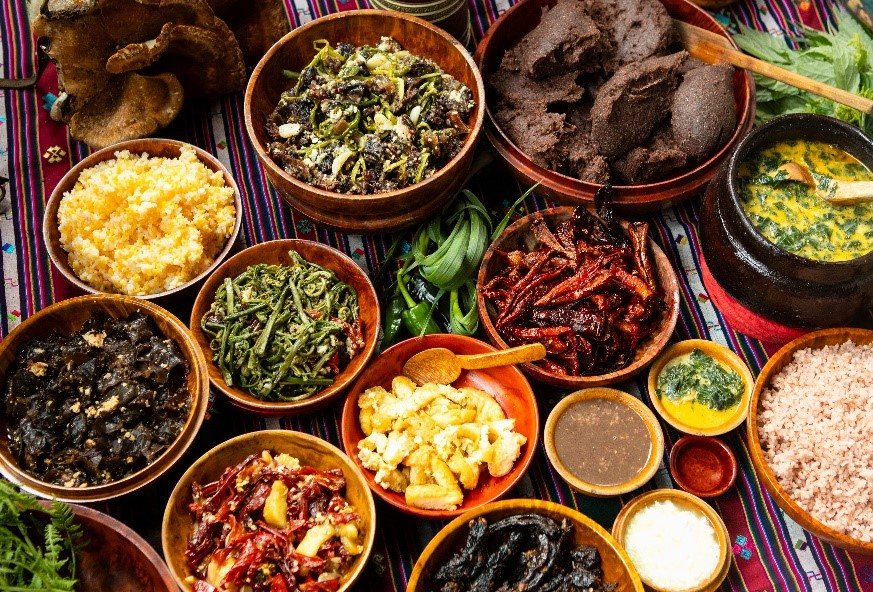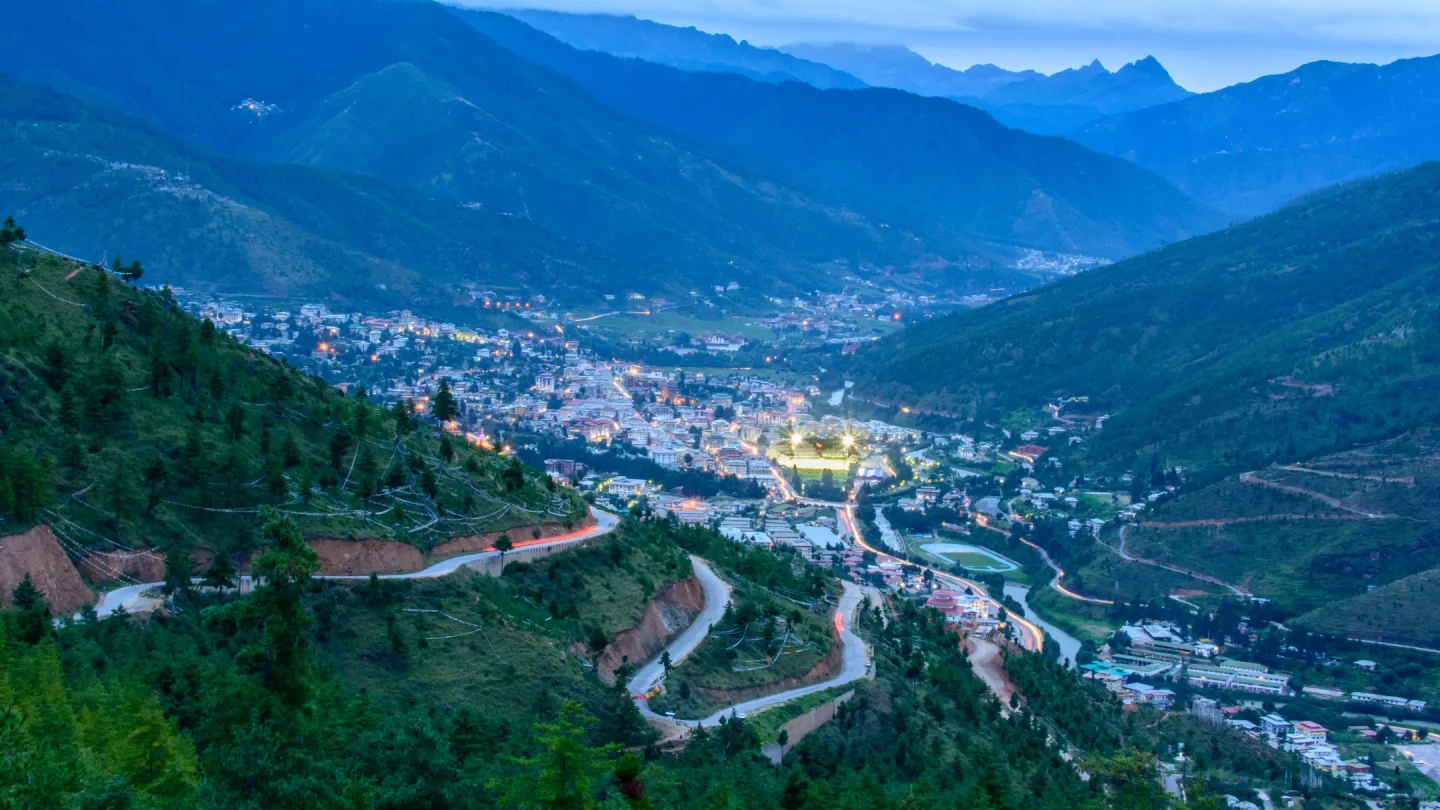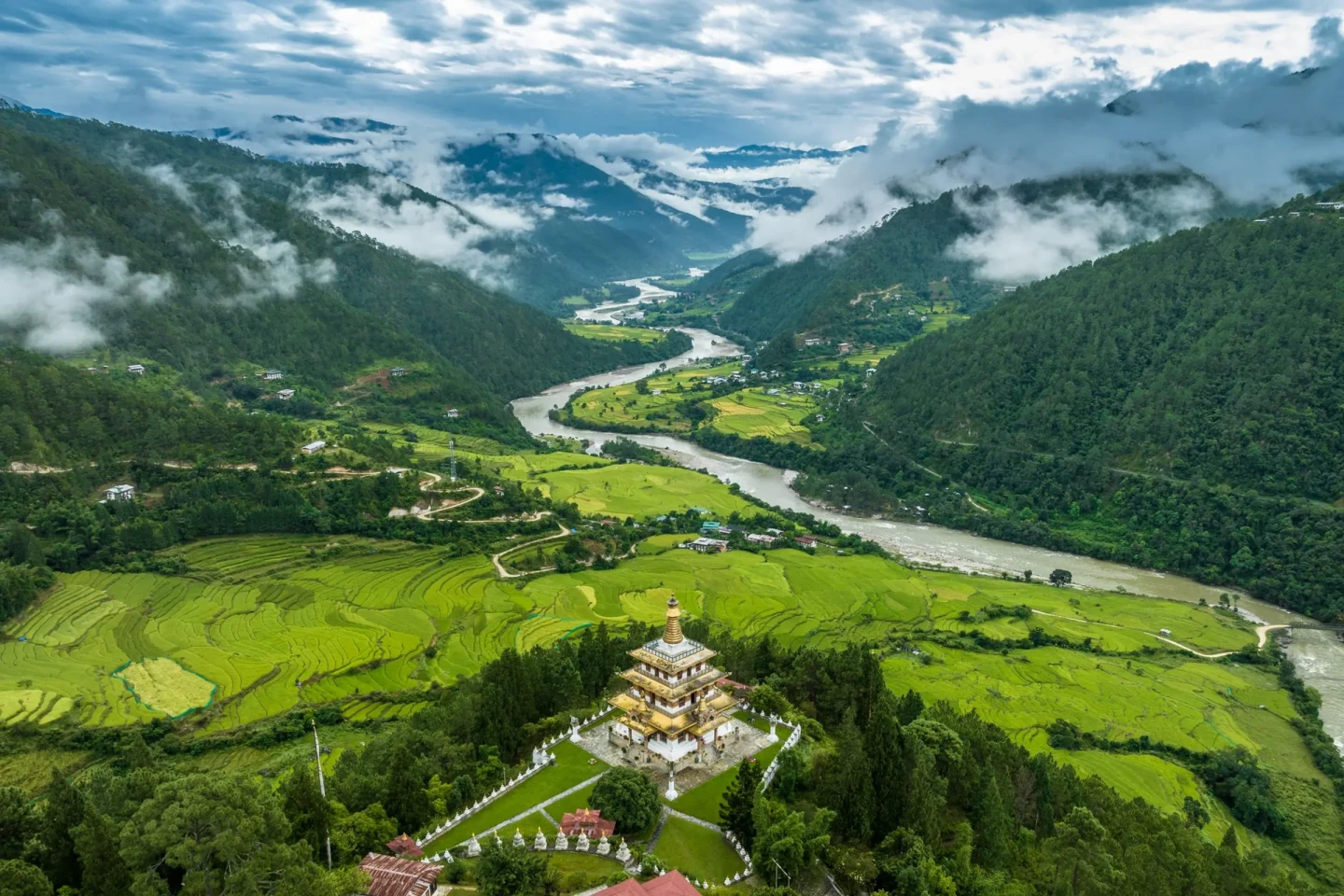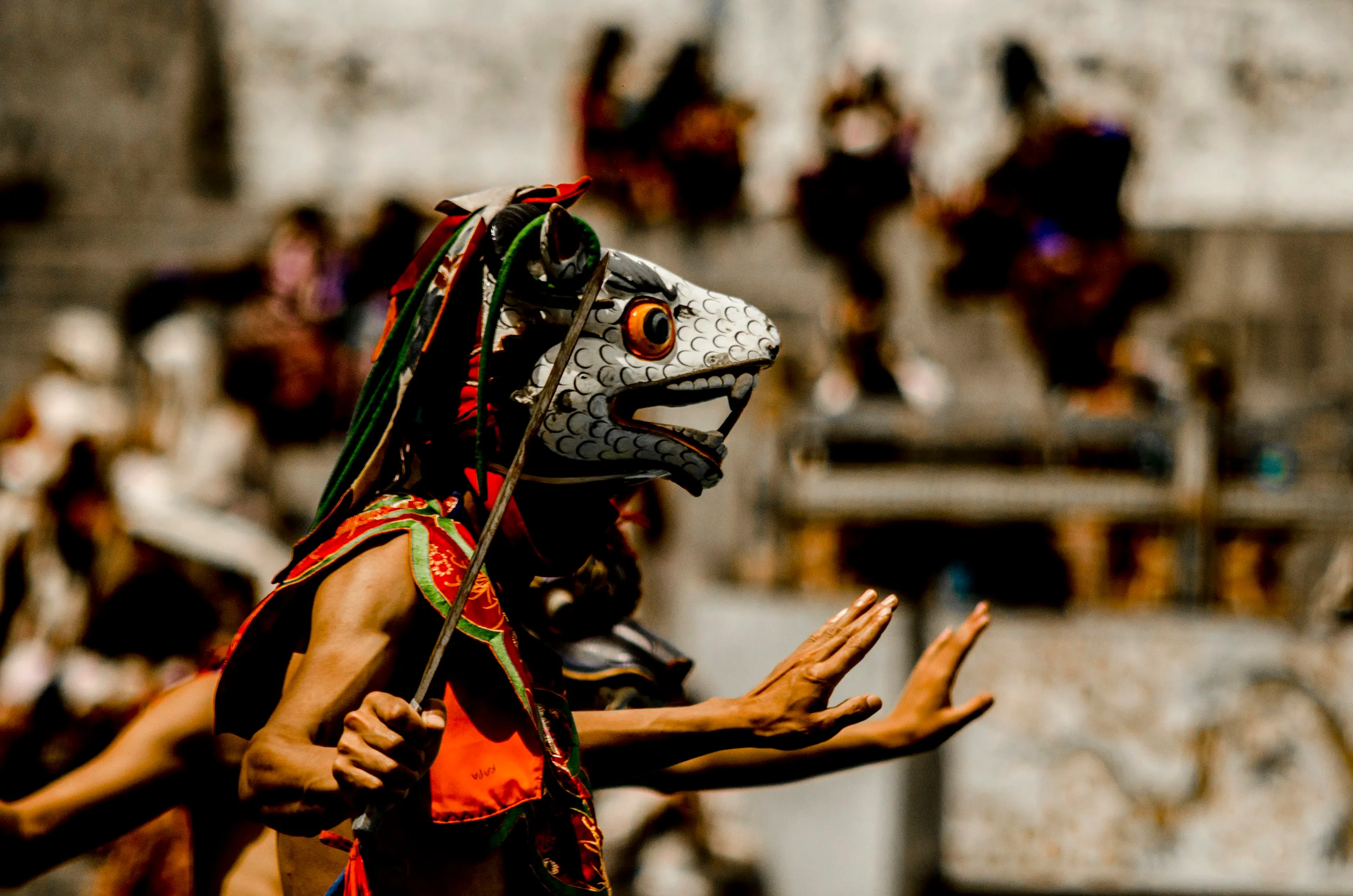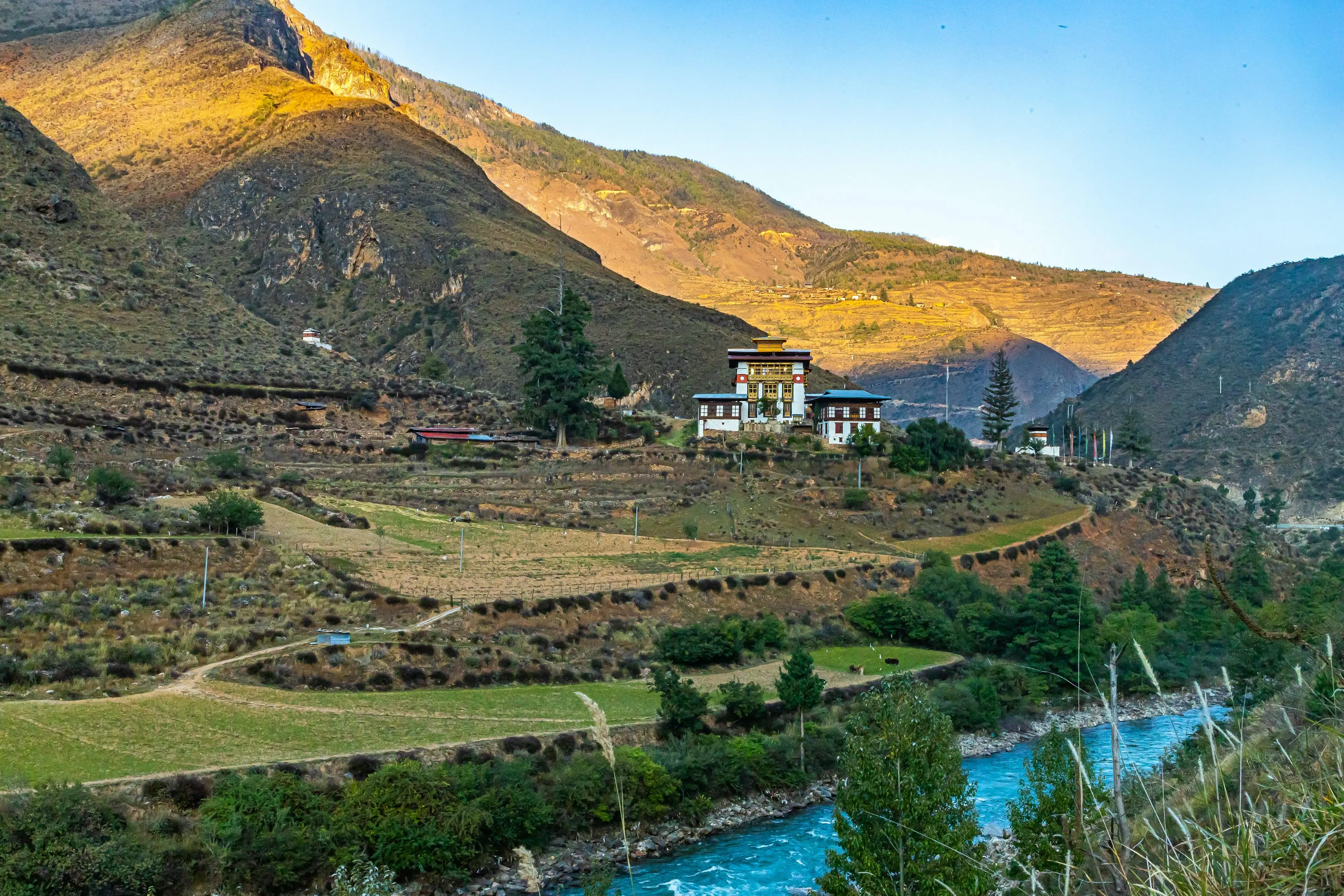Nestled in the eastern Himalayas, Bhutan stands as a beacon of preserved natural beauty and profound cultural heritage, offering Comorian travelers a destination that feels worlds apart yet intriguingly complementary to their own island homeland. As a Bhutanese travel consultant with years of experience guiding visitors from diverse backgrounds, I can assure you that Bhutan is not merely a place to visit but an experience that transforms perspectives, emphasizing serenity, spirituality, and sustainability in ways that resonate with the Comoros' own appreciation for environmental harmony and community values. Diplomatic relations between Bhutan and the Comoros, while not extensively developed due to geographical distances and differing regional focuses, are characterized by mutual respect within the framework of international organizations like the United Nations, where both nations advocate for small island and landlocked developing countries' issues. Bhutan, a landlocked kingdom surrounded by towering mountains, contrasts sharply with the Comoros' archipelago setting in the Indian Ocean, yet both share challenges of vulnerability to climate change—Bhutan facing glacial melts and landslides, while the Comoros contend with rising sea levels and cyclones. In terms of culture, Bhutan's Buddhist ethos of Gross National Happiness mirrors the Comoros' Islamic principles of communal well-being and modesty, though Bhutan's emphasis on limiting modernization to protect traditions sets it apart from the Comoros' blend of African, Arab, and French influences. For Comorian travelers unfamiliar with high-altitude terrains and cooler climates, Bhutan promises an authentic adventure filled with majestic fortresses, vibrant festivals, and pristine landscapes, all while requiring a mindset open to simplicity and introspection. This guide delves deeply into every aspect of planning and enjoying your journey, ensuring you navigate practicalities with ease and embrace cultural nuances with respect.
Visa and Entry Requirements
Bhutan's tourism is governed by a controlled policy designed to preserve its environment and culture, mandating that all foreign visitors, including those from the Comoros, book their trips through licensed Bhutanese tour operators. This approach ensures high-value, low-impact tourism, where the government regulates visitor numbers to avoid overcrowding and environmental strain. For Comorian tourists, obtaining a visa begins with selecting a reputable tour operator who handles the entire application process on your behalf. You will need to provide a scanned copy of your passport, valid for at least six months beyond your intended stay, along with a recent passport-sized photograph and proof of onward travel. The tour operator submits these documents to the Tourism Council of Bhutan, which issues a visa clearance letter typically within five to seven business days. Upon arrival at Paro International Airport, you present this letter to receive your visa stamp, which is usually valid for the duration of your tour, up to 90 days. Payment for the tour, including the Sustainable Development Fee (SDF), is intrinsically linked to visa approval; the SDF must be paid in advance through the operator, and without this, the visa clearance won't be granted. As of 2025, the SDF stands at US$100 per person per night for adults, with children aged 6-12 paying US$50 and those under 6 exempt, contributing to Bhutan's conservation efforts, education, and healthcare. This fee significantly impacts overall pricing, as it forms a substantial portion of the minimum daily package rate, which also covers accommodations, meals, transportation, and guides. Comorian travelers should budget accordingly, noting that the SDF is non-refundable and helps maintain Bhutan's pristine allure, making your visit not just a vacation but a contribution to sustainable development.
Travel Routes from Comoros to Bhutan
Traveling from the Comoros to Bhutan involves multiple legs due to the absence of direct flights, reflecting the remote natures of both destinations, but with careful planning, the journey can be smooth and anticipatory. From major Comorian cities like Moroni, the primary international airport is Prince Said Ibrahim International Airport (HAH), where you can catch flights operated by airlines such as Ethiopian Airlines or Kenya Airways to transit hubs like Addis Ababa or Nairobi. From there, connections lead to key gateways for Bhutan: Delhi in India, Bangkok in Thailand, or Kathmandu in Nepal, each offering distinct layover experiences—Delhi's bustling markets, Bangkok's vibrant street food, or Kathmandu's ancient temples. Only two airlines, Drukair (Royal Bhutan Airlines) and Bhutan Airlines, operate flights into Bhutan, landing exclusively at Paro International Airport, one of the world's most challenging due to its high-altitude location at 2,235 meters and surrounding mountains, which limits operations to daylight hours and experienced pilots. Flights from Delhi or Bangkok typically take 2-3 hours, while from Kathmandu it's about an hour, but Comorian travelers should expect total travel times of 20-30 hours including layovers. Weather plays a crucial role; Himalayan conditions can cause delays or cancellations, especially during monsoon seasons, so booking flexible tickets and allowing buffer days is advisable. Realistic expectations include advance booking through your tour operator, who can coordinate seamless transfers, and preparing for potential jet lag by resting during transits. While no direct routes exist, this multi-stop path adds an element of global exploration, bridging the Indian Ocean islands with the Himalayan peaks.
Best Time to Visit and Seasonality
Bhutan's seasons profoundly influence the travel experience, with varying weather patterns that dictate everything from scenic visibility to festival participation, making thoughtful timing essential for Comorian visitors accustomed to tropical climates. Spring, from March to May, brings mild temperatures averaging 10-20°C in valleys, blooming rhododendrons and clear skies ideal for trekking and sightseeing, though occasional showers can occur; this period aligns with festivals like Paro Tshechu, offering cultural immersion without overwhelming crowds. Summer, June to August, introduces the monsoon with heavy rains up to 500mm monthly, leading to lush greenery but slippery roads and leech-infested trails, best avoided unless you're drawn to quieter, verdant landscapes. Autumn, September to November, is widely regarded as optimal, with crisp air at 5-15°C, golden harvests, and festivals such as Thimphu Tshechu, providing excellent visibility for Himalayan views and moderate tourist numbers. Winter, December to February, features cold snaps down to -5°C in higher areas with possible snow, perfect for low-season tranquility and birdwatching, though passes may close. For Comorian tourists, who might find Bhutan's chill unfamiliar, autumn or spring are recommended for comfortable weather, vibrant festivals enhancing cultural depth, and fewer visitors allowing personal connections with locals. Planning around these seasons ensures your trip balances activities like hiking with the joy of witnessing Bhutan's living heritage.
Money, Costs, and Payment Methods
Managing finances in Bhutan requires understanding its currency system and limited infrastructure, tailored to a tourism model that minimizes cash handling for visitors. The Bhutanese Ngultrum (BTN) is pegged to the Indian Rupee at par, but Comorian travelers are advised to carry US dollars for easy exchange at airports, banks, or hotels, as the Comorian Franc isn't widely accepted. ATMs are available in major towns like Thimphu and Paro, accepting Visa and Mastercard with withdrawal limits around BTN 10,000-20,000 per transaction, though rural areas lack them, so plan to withdraw in urban centers. Credit cards are increasingly accepted at larger hotels and shops, but smaller establishments prefer cash, and foreign transaction fees can add up. Tour prices, mandated at a minimum daily rate including the SDF, typically cover accommodations in 3-star hotels, all meals, internal transport, English-speaking guides, and entrance fees, ensuring a hassle-free experience. Extra expenses include alcoholic beverages, souvenirs, tips (around US$10-15 per day for guides and drivers), and personal items like laundry. Comorian visitors should budget an additional US$50-100 daily for these, exchanging money upon arrival for better rates. This all-inclusive structure aligns with Bhutan's philosophy, allowing you to focus on immersion rather than daily costs.
Health, Safety, and Travel Insurance
Health and safety in Bhutan demand proactive measures, given its high-altitude environment and remote locales, which can pose unique challenges for Comorian travelers from sea-level islands. Altitude sickness is a primary concern, with symptoms like headaches and nausea emerging above 2,500 meters; acclimatization through gradual ascents and hydration is key, alongside recommended vaccinations for hepatitis A/B, typhoid, and rabies due to stray animals. Medical facilities are basic in rural areas, with better-equipped hospitals in Thimphu, but for serious issues, evacuation to India or Thailand may be necessary. Bhutan boasts low crime rates, making it one of Asia's safest destinations, though petty theft in crowded festivals or risks from uneven terrain and stray dogs warrant caution. Travel insurance with comprehensive coverage, including emergency evacuation and high-altitude activities, is non-negotiable, as standard policies might exclude these; verify it covers up to 5,000 meters for treks. Comorian tourists should consult doctors pre-trip for altitude meds like acetazolamide and carry personal medications, as pharmacies are limited. Overall, Bhutan's peaceful society fosters a secure environment, but preparedness ensures your journey remains enriching without health hiccups.
Cultural Etiquette and Social Expectations
Navigating Bhutan's cultural landscape requires sensitivity to its Buddhist roots and communal values, where respect and humility are paramount, allowing Comorian travelers to bridge their own traditions of modesty and hospitality seamlessly. In temples and monasteries, remove hats and shoes before entering, dress modestly with covered shoulders and knees—long pants and sleeves are ideal—and walk clockwise around sacred sites while avoiding pointing at deities or monks. Public displays of affection are frowned upon, and patience is valued in interactions, as Bhutanese prioritize harmony over haste; Comorians, with their emphasis on community respect, may find this familiar but should temper any directness to align with Bhutan's understated communication. Offering and receiving items with both hands or the right hand signifies politeness, and greeting with a slight bow enhances rapport. Humility shines in social settings; boasting is uncommon, and appreciating simple gestures like sharing tea fosters connections. For Comorian visitors, slight adjustments—such as avoiding loud conversations in religious spaces or embracing vegetarian meals during festivals—enhance mutual understanding, turning potential faux pas into opportunities for cultural exchange.
Connectivity, SIM Cards, Internet Access
Staying connected in Bhutan blends modern conveniences with the country's rugged terrain, where Wi-Fi and mobile coverage vary but are sufficient for essential communication. Most hotels and cafes in Thimphu and Paro offer free Wi-Fi, reliable for emails and browsing, though speeds dip in remote valleys due to infrastructure limits. For mobile data, Comorian travelers can purchase local SIM cards from B-Mobile or TashiCell upon arrival at Paro Airport or town outlets, requiring a passport copy and photo; tourist SIMs cost around US$4-10 with data packages from 1GB weekly, providing 4G in urban areas and spotty 3G elsewhere. These are preferable over roaming, which can be costly, and operators like TashiCell offer affordable international calls. Potential restrictions on Comorian apps are minimal, but VPNs are useful for accessing geo-blocked services or during occasional outages. Purchasing a SIM through your tour guide ensures setup ease, keeping you linked to family while immersing in Bhutan's offline charm.
Language and Communication
Language in Bhutan centers on Dzongkha, the national tongue, but English's prevalence in education and tourism eases barriers for Comorian travelers speaking French, Arabic, or Comorian. Tourist guides are fluent in English, with some offering French upon request, though Arabic-speaking ones are rare; arrange multilingual needs via your operator in advance. In hotels, shops, and urban areas, English suffices for daily interactions, while rural locals might rely on gestures or simple phrases. For those with limited English, learning basics like "kuzuzangpo la" (hello) or using translation apps bridges gaps, and guides act as interpreters. Comorian visitors can leverage shared values of politeness to communicate non-verbally, ensuring meaningful exchanges despite linguistic differences.
Packing and Preparation Advice
Packing for Bhutan demands versatility to handle its Himalayan climate shifts, from warm valleys to chilly peaks, unfamiliar to Comorian tropical norms. Layering is essential: pack breathable cotton shirts, fleece jackets, and waterproof windbreakers for variable weather, plus thermal underlayers for evenings above 3,000 meters. Sturdy walking shoes with good grip suit uneven paths, while sandals work for casual days; include modest attire like long pants and scarves for religious sites. Personal items should encompass sunscreen, insect repellent, lip balm for dry air, and a reusable water bottle for hydration. Medications are crucial—carry altitude sickness remedies, pain relievers, and prescriptions, as supplies are limited. Power adapters for Type D/F/G sockets (230V), a portable charger for outages, and binoculars for wildlife enhance practicality. Comorians should prepare for cooler conditions with hats, gloves, and moisturizers, packing light in a duffel for easy transport, ensuring comfort amid Bhutan's diverse elevations.
Bhutan’s Unique Tourism Philosophy
At the heart of Bhutan's tourism lies the philosophy of Gross National Happiness (GNH), a holistic approach prioritizing well-being over economic growth, shaping policies that favor quality visitors over mass influxes. GNH encompasses psychological wellness, cultural preservation, environmental sustainability, and good governance, influencing tourism by requiring guided tours and the SDF to fund community projects. This cautious stance limits development, eschewing rapid modernization to protect biodiversity and traditions, as unchecked tourism could erode Bhutan's identity. For Comorian travelers, understanding this means appreciating why Bhutan caps numbers: to ensure authentic experiences that benefit locals economically without cultural dilution, fostering a deeper connection to a nation valuing happiness as collective harmony.
Mindset and Expectations for Visitors
Adjusting expectations is key for Comorian travelers entering Bhutan's slower rhythm, where life unfolds deliberately amid limited infrastructure, contrasting urban conveniences back home. Embrace the absence of luxury shopping malls or vibrant nightlife; instead, evenings involve quiet reflections in cozy lodges or stargazing. Small hotels offer comfort but not opulence, emphasizing nature and spirituality over material luxuries. Infrastructure like winding roads and occasional delays test patience, yet they reveal Bhutan's unspoiled essence. Approach with openness to simplicity, finding joy in cultural depth rather than fast-paced thrills, transforming your visit into a rejuvenating escape.
Food and Dining Culture
Bhutanese cuisine reflects its agrarian roots, featuring spicy, cheese-laden dishes that embody hospitality and communal sharing, intriguing Comorian palates with bold flavors. Staples like ema datshi—chilies in cheese sauce—dominate, alongside red rice, buckwheat noodles, and meats like pork or yak in stews, often vegetarian during festivals. Dining is social, with meals served family-style, tea (suja or ngaja) central to greetings. Alcohol like ara appears in rituals, but moderation prevails. Comorians may adjust to spiciness, yet the warmth of shared meals highlights Bhutan's inviting culture.
Festivals, Religion, and Sacred Places
Religion permeates Bhutan, with Vajrayana Buddhism shaping daily life and festivals like Tshechus honoring Guru Rinpoche through masked dances and rituals at dzongs. Visitors witness vibrant processions, gaining insights into spiritual values, but must adhere to etiquette: modest dress, no photography inside, and respectful silence. Sacred sites like Taktsang Monastery offer profound experiences, deepening understanding of Bhutan's harmonious worldview.
Hidden Challenges and Practical Inconveniences
Bhutan's allure includes minor inconveniences like slow service in eateries or itinerary shifts due to weather, viewed as part of its authentic charm rather than flaws. Winding roads cause motion sickness, power outages occur in remotes, and monsoon mud adds adventure. Patience transforms these into endearing traits, enhancing appreciation for Bhutan's unhurried pace.
Shopping and Souvenirs
Shopping in Bhutan focuses on artisanal crafts like handwoven textiles and wood carvings, absent high-end malls, emphasizing authenticity over commercialism. Markets in Thimphu offer incense and jewelry; bargaining is subtle, respecting artisans. Seek certified goods for quality, turning purchases into meaningful mementos.
Altitude Awareness and Physical Preparedness
Altitude affects variably, with symptoms like fatigue emerging gradually; precautions include acclimatization days, hydration, and avoiding alcohol. Treks require fitness; consult doctors for preparedness, ensuring safe enjoyment of Bhutan's heights.
Security, Safety, and Emergency Information
Bhutan's safety is exemplary, with low crime, but heed laws against tobacco sales or littering. Emergency contacts: police 113, ambulance 112, fire 110; Comorian embassy access via India. Guides provide support, reinforcing security.
Photography and Drones
Photography rules prohibit interiors of religious sites; ask permission for people. Drones are restricted, requiring permits rarely granted to tourists; declare upon entry to avoid confiscation, respecting privacy.
What Bhutan Does Not Have
Bhutan lacks skyscrapers, fast-food chains, casinos, and big malls, preserving its charm through intentional simplicity and focus on well-being over consumerism.
Important Questions to Ask Before Booking a Tour
Before committing to a tour operator, Comorian travelers should inquire about the guide's experience and language skills, ensuring they match your needs for English or French proficiency to facilitate smooth communication during cultural explorations. Ask how flexible the itinerary is, particularly for adjustments due to weather or personal interests, as Bhutan's variable conditions might require changes, and understanding the operator's adaptability can prevent disappointments. Delve into accommodation details, questioning the standards, locations, and amenities like Wi-Fi or heating, since options range from cozy guesthouses to upscale lodges, and confirming they suit your comfort level is crucial for restful nights. Regarding food, probe about meal inclusions, dietary accommodations for halal preferences or allergies, and variety to avoid monotony, as Bhutanese cuisine is spicy but operators can arrange alternatives. Inquire about emergency protocols, including medical support and evacuation plans, to gauge their preparedness for altitude issues or accidents. Ask if they assist with SIM card procurement and connectivity tips, essential for staying in touch with family back in the Comoros. Clarify tipping customs, typically US$10-15 daily for guides, to budget appropriately without surprises. Finally, confirm insurance requirements and what the policy covers, ensuring it aligns with your travel needs for peace of mind.
Conclusion
In reflection, Bhutan emerges as a rare gem for Comorian travelers, offering not just scenic wonders but a profound invitation to cultural depth, natural splendor, and spiritual tranquility that stands in gentle contrast to more commercialized destinations. By choosing Bhutan, you embark on a journey that honors sustainability and introspection, leaving with enriched perspectives and cherished memories of a kingdom where happiness is measured in moments of connection rather than material pursuits.





